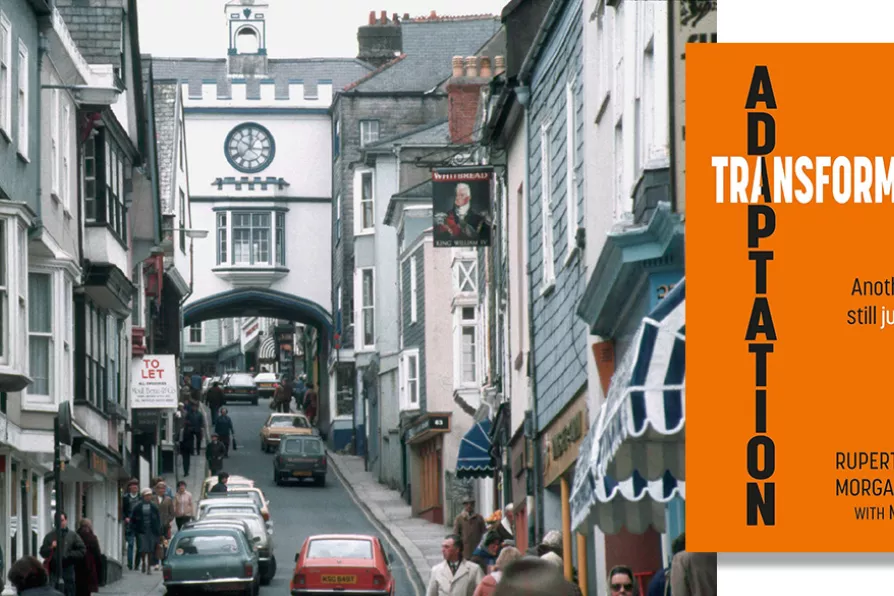The Bard stands with the Reformers of Peterloo, and their shared genius in teaching history with music and song
Hope for the best, expect the worst
IAN SINCLAIR welcomes the first word on Transformative Adaptation, a new group that has grown out of Extinction Rebellion

 AHEAD OF THE CURVE: Transition town are grassroot community projects that aim to increase self-sufficiency to reduce the potential effects of peak oil, climate destruction, and economic instability through localization strategies, especially around food production and energy usage. In 2005, the founding of Transition Town Totnes became an inspiration for other groups to form.
[Manfred Heyde/CC]
AHEAD OF THE CURVE: Transition town are grassroot community projects that aim to increase self-sufficiency to reduce the potential effects of peak oil, climate destruction, and economic instability through localization strategies, especially around food production and energy usage. In 2005, the founding of Transition Town Totnes became an inspiration for other groups to form.
[Manfred Heyde/CC]
Transformative Adaptation: Another World Is Still Just Possible
Rupert Read and Morgan Phillips, with Manda Scott, Permanent Publications, £10.95
IN 2024 the Guardian polled hundreds of leading climate scientists, finding almost 80 per cent expected at least 2.5°C of global heating by 2100, with almost half anticipating at least 3°C.
According to top climate scientist Professor Stefan Rahmstorf, a 3°C world will be “full of horrors” and “an existential threat to human civilisation.”
Similar stories

IAN SINCLAIR recommends an important and timely book for climate politics right now and in the future

GUILLERMO THOMAS recommends a useful book aimed at informing activists with local examples of solidarity in action around the world

HENRY BELL is provoked by a book that looks toward, but does not fully explore the question of who gets to imagine the shapes of cities to come

IAN SINCLAIR draws attention to the powerful role that literature plays in foreseeing the way humanity will deal with climate crisis










